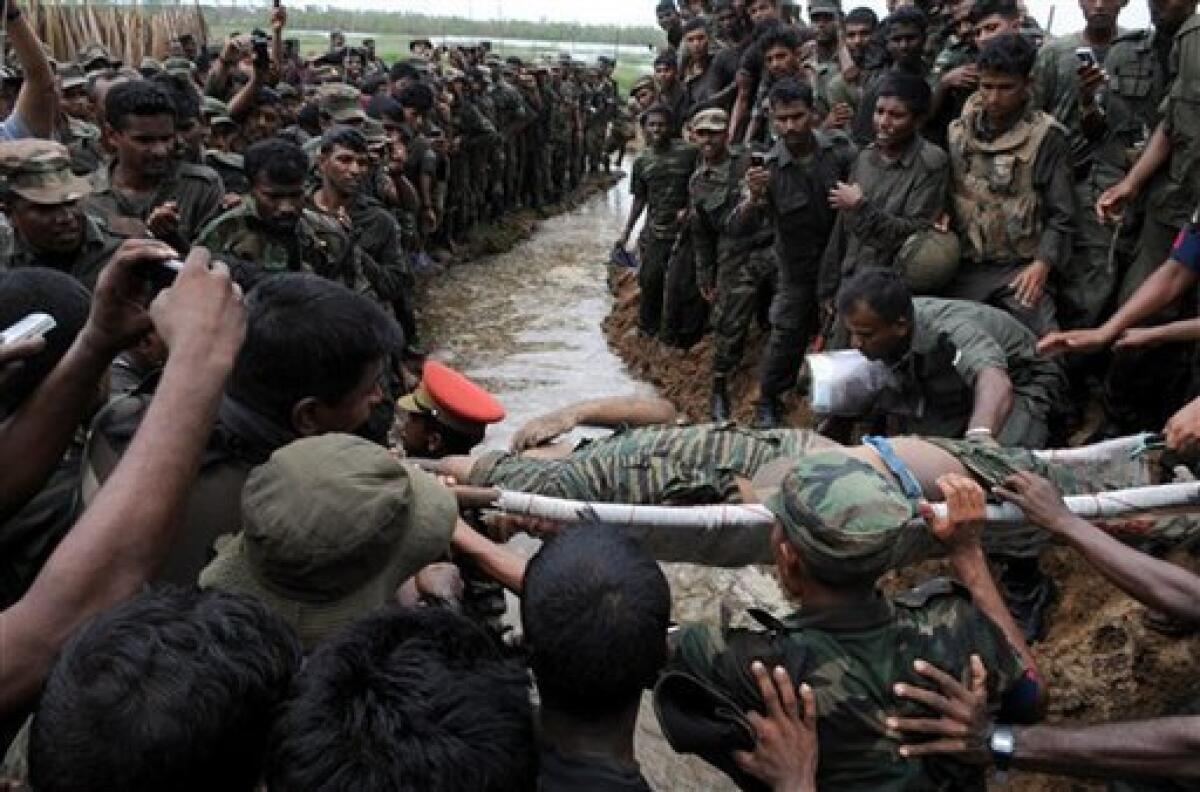UN official calls for Sri Lanka reconciliation

A top U.N. official appealed to Sri Lanka on Friday to begin a process of national reconciliation following its war with the Tamil Tiger rebels, but also cautioned that investigations into war crimes allegations remained possible.
U.N. Secretary General Ban Ki-moon was scheduled to travel Friday to Sri Lanka to discuss the conditions of nearly 300,000 ethnic Tamil civilians displaced by the war and to urge the government to work to heal this nation’s ethnic divisions in the wake of the conflict, said his chief of staff, Vijay Nambiar.
The war broke out in 1983 with the Tamil Tigers demanding a separate homeland for the nation’s ethnic Tamil minority after decades of marginalization by the majority Sinhalese. In recent months, an intense government offensive forced the rebels to retreat from their strongholds in the north and cornered them along with tens of thousands of civilians along the northeast coast.
Ban sent Nambiar to Sri Lanka last week to press the government to pull back from its final offensive and allow the civilians in the war zone to escape. However, since he arrived, the military routed the rebels and killed their top leaders, effectively ending the war.
Nambiar said the government now needed to hold discussions with Tamil leaders to pursue a political solution to their grievances.
“The process of national reconciliation, we feel, must be all inclusive so that it can fully address the legitimate aspirations of the Tamils as well as other minorities,” he said. “It is important that victory becomes a victory for all Sri Lankans.”
International human rights groups accused the government of shelling the densely populated war zone in the closing months of the war, killing thousands of civilians. The government denied the accusation. The rebels were also accused of holding tens of thousands civilians against their will as human shields against the government offensive.
Nambiar said he was flown over the former war zone in a helicopter Thursday and saw below him a scene of mass devastation.
Vehicles on the ground were charred, trees were burned, closely clustered tent camps were badly battered, he said.
“We were not able to see any civilians. What was truly striking was almost the total absence of human habitation ... it was almost eery,” he said.
Asked whether the United Nations planned to aid in investigations into possible war crimes, Nambiar said the issue was expected to be discussed at the U.N. Human Rights Council next week.
“As far as the U.N. is concerned, where there are grave and systematic violations of international humanitarian law, these are things which should be looked at by the international community, by the United Nations,” he said.